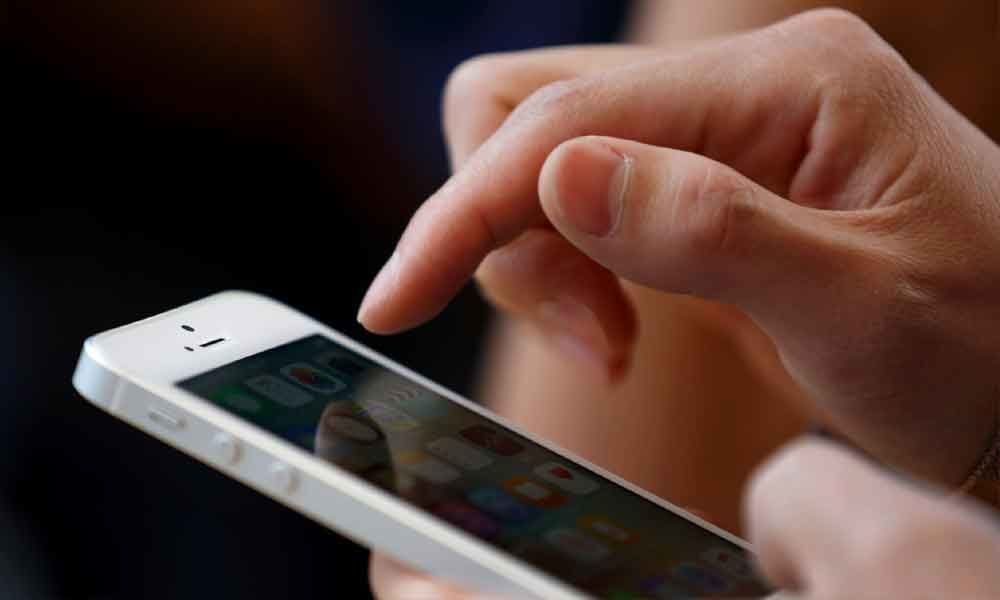Live
- HMPV Outbreaks Spark Global Health Concerns: What You Need to Know
- Gautam Gambhir Faces Criticism Over Tactical Errors in Australia Tour
- CM Revanth Reddy Announces Surprise District Tours Starting January 26
- Telangana's TOMCOM Invites Applications for Driver Jobs in Germany
- Calcutta HC rejects plea by rights body for stall allotment at Kolkata Book Fair
- Bengaluru Beer Prices to Rise by Up to 20% Starting January 20
- My Fans Are Like Disciplined Soldiers: Nandamuri Balakrishna
- Adani Group raises Rs 4,850 crore after selling 13.5 pc stake in Adani Wilmar
- "Jogulamba Gadwal Health Officials Assure Public: No Panic Over HMPV Virus".
- "Charity and Annadanam Program Held on BOSS Hanumanthu Naidu’s Birthday".
Just In

Using your smartphone to relax and pass time may be associated with negative feelings, lack of control and a reduced sense of purpose in life, a study warns.
Melbourne: Using your smartphone to relax and pass time may be associated with negative feelings, lack of control and a reduced sense of purpose in life, a study warns.
The study, published in the journal Computers in Human Behavior, is the first to thoroughly evaluate how smartphone use is associated with measures of subjective and psychological wellbeing. Researchers at Deakin University in Australia showed habitual smartphone use and entertainment use -- to relax, escape and pass time -- were the best predictors of lower wellbeing. The survey of over 500 students found problematic smartphone use was associated with feelings of negative emotions, lack of control, a reduced sense of purpose in life, and a ability to resist social pressure.
"There's a constant stream of news and entertainment in our life now, and if that content is not necessarily positive it might be contributing to technological overload or techno-exhaustion," said lead researcher Sharon Horwood from Deakin's School of Psychology. "While there has been some analysis of smartphone use and subjective wellbeing, this study goes into much greater depth," Horwood said in a statement.
Past research has examined wellbeing in terms of life satisfaction and whether people tend to experience more positive emotions than negative emotions. "This research offers a more complete picture of what makes the 'good life' including positive social relationships, a sense of personal growth, autonomy, and having a sense of control over one's life," Horwood said.
"While we found that smartphone use is unrelated to people's overall life satisfaction, it is associated with mood and these broader indicators of human flourishing," she said. "Wellbeing is about feeling satisfied with your life, managing day-to-day activities, and positive relationships. We found that problematic smartphone use impacts all those things," he said. Horwood said there are four main areas of wellbeing which negatively related to problematic smartphone use.
These included how much control people felt they had over their use, whether smartphone use interferes with a person's day-to-day life, whether the phone gets in the way of positive relationships with others, and whether smart phone use was a panacea for boredom and lack of personal growth. "The question is, does using your smartphone in a problematic way lower wellbeing, or is someone whose wellbeing is low for other reasons more likely to turn to their smartphone for comfort, distraction, or perhaps escapism?" she said. However, Horwood said it was important to note her study showed smartphone use was not all bad.
"For what we term 'communication use' -- calls and text messages -- we found a slight positive association with wellbeing," she said. "So using phones to facilitate a direct connection with people seems to be good, as opposed to passively looking at what people are doing on social media," said Horwood. The next step in Horwood's research is to drill down into the impact of smartphone use on children's social and emotional wellbeing, as well as their family relationships.

© 2025 Hyderabad Media House Limited/The Hans India. All rights reserved. Powered by hocalwire.com







